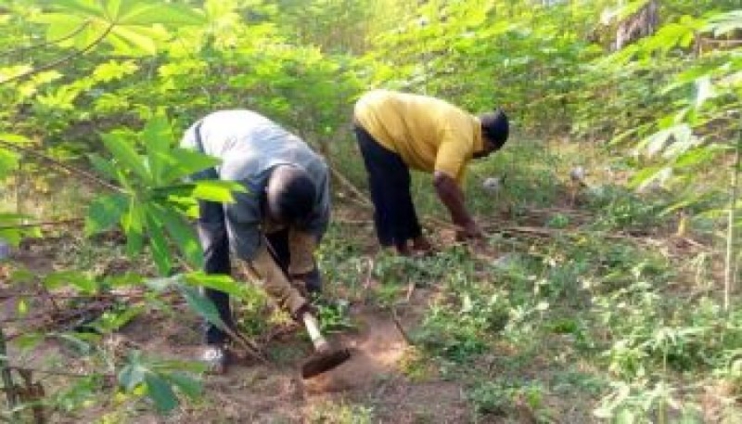CEO of Western Group Limited, Alfred Amofa says that Ghana experienced a farming debacle in 2022.
He said the 2022 farming season was the worst compared to previous years.
Speaking on JoyNews’ AM Show, Wednesday, Mr. Amofa expressed dissatisfaction with the way farming activities were handled by government in the just-ended year.
“They talk of 1983 but I was just 1 year old so I couldn’t have witnessed it, but since I became an adult, I’ve never seen such a difficult year in terms of farming like that of 2022.
Sometimes I get confused when someone suggests that 2022 was better that the previous year. It can never be possible; the realities on the field do not suggest that. I don’t think anyone can actually make any allusion to that fact because those facts would be rejected--- because you just need to go there and see the land empty, people are not farming on it.
For me, 2022 was a very difficult year and it was a catastrophic disaster,” he said.
Mr. Amofa said the One District One Factory policy which was executed to support the export of raw materials and import of finished goods, did not have any significant positive effect on agriculture.
According to him, the support government gives is just “a one-time-off thing.”
“When you do import anything, government pays a percentage of the import duties. That is what government gives to the beneficiaries of 1D1F, so it’s not like every year, government is going to give you some cash or something to support; it is a one time off thing,” he added.
According to him, about 70% of “our growers could not plant” in the 2022 farming season due to high cost of production.
Earlier on the show, Dr. Lawrence Acheampong, a lecturer at University of Cape Coast, Department of Agricultural Economics and Extension also lamented the ineffectiveness of the Planting for Food and Job policy initiated by the government. According to him, farmers are not getting the needed support.
He has recommended a review of the policy.
In 2022, Ghana experienced high increase in food prices which was largely attributed to the Russia-Ukraine war. The country also faced fertilizer supply problems. These problems alongside inflation caused high increases in food prices.
Meanwhile, government is exploring options to cut down on or totally end the importation of some food stuff especially rice.
Latest Stories
-
Photos from DW-JoyNews street debate on ‘galamsey’
43 mins -
Mimmy Yeboah: Blending heritage with global sophistication, confidence redefined through couture
57 mins -
Akufo-Addo commissions 97-km Tema-Mpakadan railway line
1 hour -
Majority requests recall of Parliament
2 hours -
Kanzlsperger and Professor Quartey support WAFA with medical Donation
2 hours -
Gideon Boako donates 10 industrial sewing machines to Yamfo Technical Institute
2 hours -
‘Golden Boy’ Abdul Karim Razak honored at WAFU-B general assembly
2 hours -
Buipewura Jinapor secures Vice Presidential position in National House of Chiefs with record votes
2 hours -
2024 election: I want results to come out like ‘milk and honey’ – Toobu
2 hours -
Ghana’s Henry Bukari hands over chairmanship of ECOWAS Brown Card Council of Bureaux
2 hours -
Residents of Dome-Kwabenya on edge ahead of December elections
3 hours -
Moffy drops new single ‘Wo’, blending culture and modernity
3 hours -
Don’t bring soldiers to polling stations – Martin Kpebu
3 hours -
Ogyeahohuo Yaw Gyebi II retained as President of National House of Chiefs
4 hours -
Embrace ICT to fit in digital world – Ho NYA boss to youth
4 hours

